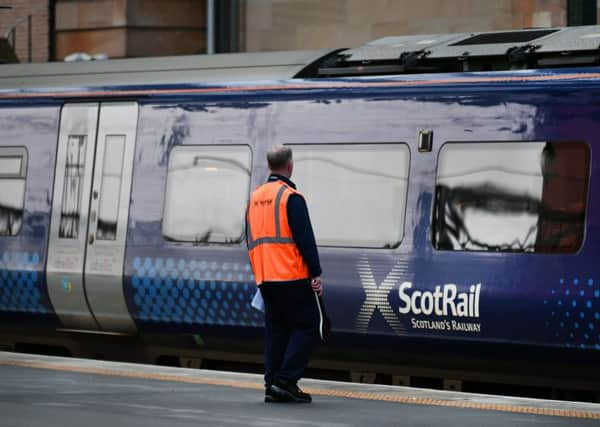ScotRail station skipping stats for Fife revealed: How did your station do?


The practice of not stopping at stations to keep trains on time sparked a huge backlash among commuters last year, and politicians demanded action.
Figures revealed today show that in 2017, there were 2050 instances of station skipping – but that figure dropped to just over 500, in 2018 a decline of some 75 per cent.
Advertisement
Hide AdAdvertisement
Hide AdThey come ahead of Thursday’s public meeting where commuters will get the chance to grill ScotRail boss, Alex Hynes, at Kirkcaldy’s Town House.
There were huge improvements at individual stations across central Fife.
You may also be interested in:
Advertisement
Hide AdAdvertisement
Hide AdBurntisland saw a drop from 158 to 38 (84 per cent), and Kinghorn went down from 158 to 38 (76 per cent).
Kirkcaldy had one of the lowest improvement rates at 59 per cent, but did record a drop from 120 to 49.
Springfield enjoyed a 100 per cent rate – from nine to zero – while the best improvement came at Lochgelly which saw an 86 per cent decline from 121 to just 17.
Other stations’ figures included: Markinch 112 down to 29 (74 per cent), Cupar 47 down to 10 (79 per cent), Dalgety Bay (163 down to 39 (76 per cent) and Aberdour 164 down to 39 (76 per cent)
Advertisement
Hide AdAdvertisement
Hide AdNorth Queesnferry remains the worst affected station with 76 trains skipping the station in 2018 – down from 235 but still an average of six per month.
The Scottish Greens, who released the figures, welcomed the improvement, but said ScotRail now needs to address concerns over cancellations and overcrowded trains.
The party has also called for station skipping to be banned in the next franchise agreement.
Mark Ruskell, Mid Scotland and Fife MSP said, “These figures show a significant drop in ScotRail trains deliberately missing their stops, which all commuters will welcome.
Advertisement
Hide AdAdvertisement
Hide Ad“It goes to show that the train operators can make substantial improvements when they are called out publicly for delivering a bad service, and raises questions over their claims at the time that stop-skipping was an necessary practice to help them ‘re-set’ the network following delays.”
Mr Ruskell said there was still room to improve services in the Kingdom.
“People in Fife still don’t feel like their rail service is reliable or value for money. I’m continuing to hear reports of significant cancellations and overcrowding on commuter services, and the promise of extra capacity for the Fife Circle has yet to be delivered.
“Fife commuters pay some of the highest fares in Scotland, so it’s going to take more than just an improvement in stop-skipping for Scotrail to win back the support of the public. I’ll be looking for an update on overall cancellations and delays on the Fife network, and will make it clear to ScotRail that if they can improve stop-skipping by 75 per cent they need to do the same for all aspects of the service.”